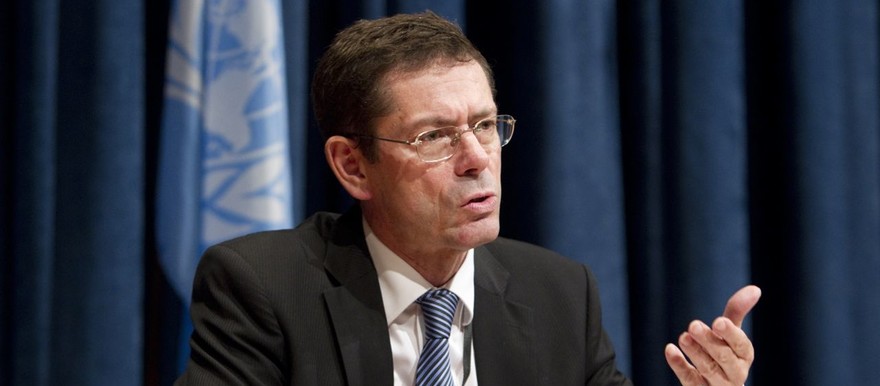Ivan Simonovic, the top human rights official in the United Nations, has published an article on “horrible crimes” committed in South Sudan, pointing especially to the alleged massacre of more than 200 men in the Gudele neighborhood of the capital Juba more than a month ago.
Simonovic, the UN Assistant Secretary-General for Human Rights and former Justice Minister of Croatia, visited South Sudan last week as part of his oversight of the human rights monitoring efforts carried out by the United Nations.
He quoted directly the account of a survivor of the massacre, which occurred at a police station in Gudele on the night of 16 December. The killings there took place after police and soldiers rounded up Nuer men and forced them into one crowded room.
President Salva Kiir has described the work of the United Nations in South Sudan as biased, saying they have sided with rebels. He says, “I’m confident that our forces acted according to the international laws,” according to an interview he made with Al Jazeera on Wednesday.
“What I don’t like is this blanket accusation that both sides have done this (crimes),” added Kiir. He says the UN is so biased that their personnel in South Sudan have even given fighting equipment to rebels to be used in the conflict.
Simonovic, in an opinion article published by the online daily Sudan Tribune, quoted a survivor of the Gudele killings as recounting, “We were picked up at checkpoints or during house searches. They recognized us by our accents, or by the traditional marks on our faces.”
The survivor continued, “200-400 of us were brought to a room of a police station, so small that we were suffocating. Suddenly they opened fire on us from two windows.”
“I fell to the ground, and was protected by the bodies of dead and injured lying on top of me. Some of the wounded were moaning, and they opened fire twice again during the night,” said the survivor, as quoted by Simonovic in the Sudan Tribune article dated 23 January.
The UN Assistant Secretary-General explained the incident as one of several “credible reports of mass and extrajudicial killings” which occurred in South Sudan since the start of the violence in the country in mid December.
‘Ethnicized truth,’ ‘different realities’
In remarks to the BBC as well as his article in Sudan Tribune, the human rights official has described a situation of ‘ethnicized truth’ in South Sudan, in which observers of different ethnicities generally have different accounts of what has happened in the country, downplaying crimes committed by their own side and exaggerating those committed by the other side.
“Who started this conflict? And who is targeting civilians? The ‘truth’ depends on what ethnic background you have. When I talked to displaced people, victims and their families in camps in Juba, Bentiu and Bor, I found their perception of the conflict so influenced by their ethnic affiliation that it was as if they lived in different realities,” he explained in his Sudan Tribune piece.
South Sudanese officials have not publically commended on the killings in Gudele, but they have established a five-member committee under the police inspector-general to investigate killings of civilians in Juba including the Gudele incident.
Human Rights Watch was the first to report on the killings, saying in an earlier report that 200-300 Nuer men were killed at the Gudele police building by “gunmen alleged to be government forces.”
The independent rights group talked to neighbors of various ethnicities who described with great distress the huge number of bodies they saw at the site on 17 December and their removal in large trucks on 18 December.
For his part, Simonovic has vowed to make a “comprehensive” report addressing crimes committed in Juba and some other places, according to remarks recorded by BBC on 17 January. He says this report will be ready within a few weeks.
‘South Sudan on fire‘, by Ivan Simonovic (23 Jan., Sudan Tribune)
HRW documents massacre of 200-300 Nuer men in government building in Juba (17 Jan.)
File photo (UN)




